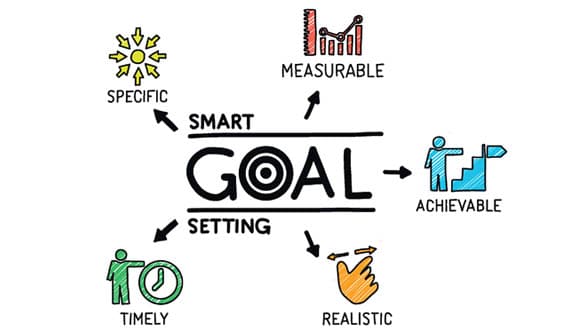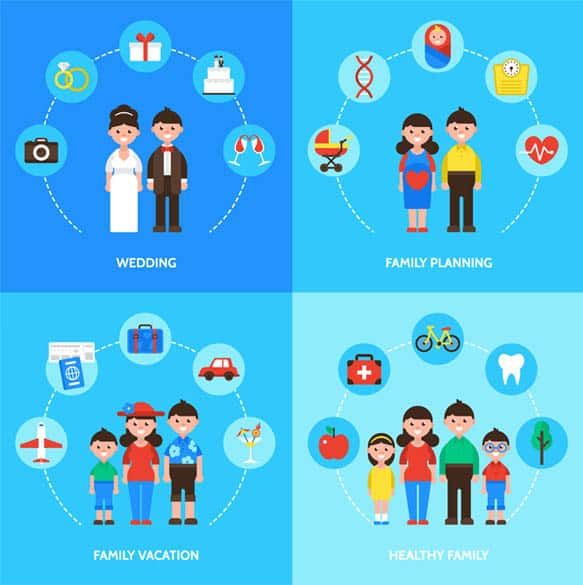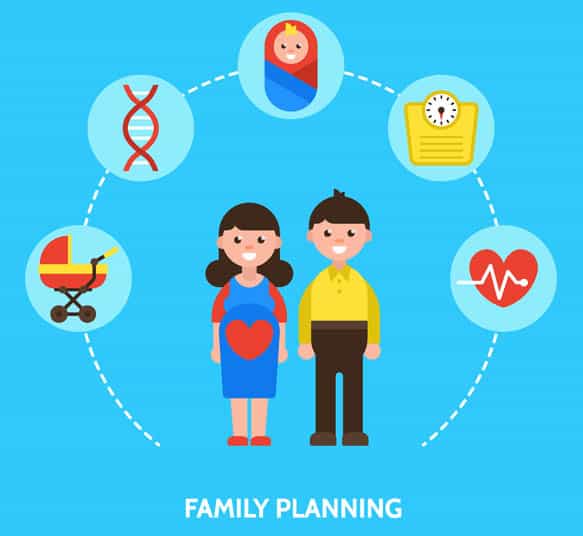
Diabetes is a disease that requires a lot of work to keep it managed. Good diet choices, weight management, exercise, doctor’s visits, and possibly medications must all be balanced to keep your body in good health and your blood sugar levels within normal limits.
If your blood sugar levels are not controlled, then you can have issues such as:
- Kidney disease
- Stroke
- Blindness
- Poor circulation
- Wounds that will not heal
- Neuropathy
These problems decrease the quality and length of life for the person with the disease, but they can also decrease the quality of life for the significant other involved.
Couples with one or both members diagnosed with diabetes can struggle to find that perfect balance between helping and hurting each other. It is very difficult, but it can be done.
Contents
- Education about diabetes
- Make lifestyle changes together
- Set small goals together that you can reach together
- Work as a team and not against each other
- Be patient with each other
- Be honest with each other about what is working for you
- Share but do not compare each other’s numbers
- Encourage each other especially when one of you has fallen off the wagon
- Address the sex life
- Family planning
Education about diabetes

The first thing that you need to do is to be sure that you both really understand diabetes. You should know what causes it and how to prevent it from creating life-long problems. Go together to meet with a diabetes educator and a dietician to learn everything that you can. This will help both make the best choices.
Communication about each other’s diabetes needs
Communication is extremely important in a relationship. It makes the bond between two people stronger and it also builds intimacy.
Talking about your needs is key to helping a relationship grow, whether it is concerning your job, family, or your health such as your diabetes.
In order for a relationship to be successful, you should understand your partner’s needs and they should be aware of yours.
Struggles with communication can lead to tension, stress, and even the ending of the relationship.
Other recommended guides to read:
Talk to your partner about what you need to be more successful in managing your diabetes. If you need them to help you make better meal choices, or if you need to meet with an exercise coach to really motivate you to work-out, make your needs known. Hopefully, the plan for you and your partner is to spend a long time together. You should want to know their needs so that you can invest in them, and vice versa. That way you can keep each other happy and healthy for as long as you can.
Another important thing to remember is that diabetes is a very expensive disease, even if you have insurance. Set aside money for co-pays, medications, or equipment that you need so that when you do have to make a purchase, it doesn’t put you or your family into a financial crisis. Make sure to read our article on how to save money on diabetes supplies.
Make lifestyle changes together
When you are making lifestyle changes together, you are going to have to find things that work for both of you, or they are not going to work or stick around. Collaborate with each other to find things that fit into both of your lives.
- Nutrition
Good nutrition plays a key role in managing diabetes. If you make the right choices, you can lower blood sugar, decrease your weight, and lower blood pressure and cholesterol.
Things that you can do together as a couple include:
- Take cooking classes together and learn how to prepare healthy meals
- Go to the farmer’s market
- Keep unhealthy items out of the house to avoid the temptation
- Cook your meals together once a week, or take turns cooking healthy meals for each other
- Meet with a dietician together to learn what foods are the best for you
- Try new healthy foods together
- Involve the kids in the healthy choices that you are making so that they can see what foods are best for them
Once again, communication is key when figuring out what will work best for your relationship. If one of you enjoys cooking, and the other enjoys grocery shopping, then splitting things up that way might work better.
Also, food preferences must be known. If you absolutely hate broccoli, then make sure that your partner knows that. Check out our book ultimate guide to diabetes meal planning for recipe ideas and more tips.
Food choices that should be low in fats and carbohydrates. Always pick whole grains, and lean meat is a better option. Be careful about your beverage choices as well. Water should always be your first choice because it helps to regulate your blood sugar and it doesn’t contain any sugar. Avoid sugar drinks such as sweet tea or soda.
Making these changes can be hard, especially if you have to make them suddenly. When you are able to make them together though, you can use each other as support. Don’t think that you are depriving yourself of anything. These are lifestyle changes that you are both going to make to add enjoyable years to your life.
- Physical activity
Things that you can do:
- Motivate each other. If your partner wants to hang out on the couch and not exercise, just give them a gentle nudge to come with you. (Don’t nag!)
- If you can, spend time together exercising. It releases endorphins and can increase intimacy and bonding.
- If you don’t have time, find out what works best. If one of you needs to exercise in the morning and one in the evening, then that may be best.
- Try new activities together. Instead of going out to eat for your date, go hiking or walking through your local downtown.
- Involve the kids when you can. Have a family walk or go to the park. You are not only spending quality time with them, but you are teaching them healthy habits.
- Look into getting a gym membership. Many gyms have couple passes or family passes. Also, many of them have programs for children so that you can bring them with you.
- Take dance lessons together as a couple. This can build intimacy, while also providing exercise.When you are making these changes, you should remember that they are not just short term goals. These need to stick around for a long time. Make changes that you both will enjoy doing and will not feel like a daunting task to go through. This way you will have fun and will not want to stop.
Here are some tips on how to exercise together:
- Exercising together can be fun. For me, this is something that my husband and I are just starting to experience. I have always been a runner, while he only runs if something is chasing him. He recently got the news from his doctor that without changing his health, he would be on blood pressure medication soon, which absolutely terrified him. But finding time for both of us to run during the day with 2 full-time jobs and 2 children was becoming a struggle. We started going to the park with the kids. The older one rides her bike, while the baby stays in the stroller with me. When my husband is done running, he then plays with the kids so I can finish my run. It’s actually an amazing thing to work together so that we both get what we need.
- Exercise is also an essential part of your diabetes management and your overall health. Exercising also lowers your blood pressure, cholesterol, weight, and blood sugar. Make sure you talk to your doctor before starting any type of exercise plan.
Set small goals together that you can reach together
When you are working with your significant other, set goals not only for your diabetes, but for your relationship as well.
Great goals to set together would be:
- Both of you have a lower A1C by the time you have your next check-up
- Go on a “healthy date” once a month
- Cook one healthy meal together a week
- Each of you lose a few pounds (although be very careful not to compare your weight loss)
When you reach these goals together, it is a fantastic bonding moment and it is very beneficial for your relationship. If you reach a goal, then reward yourselves. Go away for a weekend, or take a cruise. Celebrate the victory.
Work as a team and not against each other
The ultimate responsibility for controlling diabetes is in the hands of the person with the disease.
However, the spouse or significant other should assist them with their needs, in a helpful way. If you are offering help, do so in a constructive way, and do not act as though you are a “Diabetes Monitor” pointing out every mistake that your partner makes. This can cause anger, it will disrupt the communication, and can eventually lead to resentment.
Recommended reading:
The stress of a relationship can actually increase your blood sugar, which is not good for someone with diabetes.
Remind yourself that you are in the same team and not in opposite teams working against each other. Remember that your partner is coming from a place of love and care, not from a place of judgement or criticism. Ask your partner how much involvement would they want from you in their diabetes management. Use the resources that you both have and collaborate to make each other’s lives and health better.
That is what a partnership is supposed to be about, isn’t it?
Be patient with each other
Understand that anger and frustration are common with chronic illnesses such as diabetes. Eventually it can lead to depression, which can be damaging to a person and a relationship. Recognizing those feelings and talking through them are very important. However, it can be difficult for someone to admit those emotions. If your partner is feeling that way, ask them if they want to talk about anything, but do not push the subject if they are not ready to open up.
People deal with their problems in lots of different ways. Some want to be open and be honest, while others like to keep everything to themselves. Either way is okay, and we need to respect that. Many aspects of marriage are like that. Some people tell everyone about their day at work, even down to what their co-worker ate for lunch, while other people keep it very simple with maybe a 2 word answer.
It is also important to remember that everyone treats their diabetes differently too. If you and your spouse both have diabetes, his treatment plan may be different than yours, and that is just fine. What is that reading that they use at weddings all the time?
“Love is patient, love is kind…” Don’t forget that when it comes to your partners health either.
Be honest with each other about what is working for you
Like I mentioned earlier, what works for your disease may not work for your spouse. In order for you to reach the optimum level of health and control your diabetes, you need to do what really works for you and what will stick around. Let’s be real. If you try to stick with a healthy diet plan and exercise regimen that you hate, you won’t do it. Be honest with your partner about the things that are working for you, (such as the 100 calorie almond packs), and what is not, (like the 5:30am boot camp class your wife signed you up for at the gym).
Also be honest about your fears and your frustrations with the disease. Are you concerned about how long you will be healthy or if you will be a burden to your spouse or your children?
Talking about these things is not easy, but it is key to making progress in the relationship.
In a healthy relationship, you should collaborate, not compare. Your partner should be your strength and your cheerleader, not your competition. Be a sounding board for your spouse to talk to, but avoid throwing your low numbers in their face. You wouldn’t talk that way about salaries or weight (at least you shouldn’t), so don’t do it with your glucose readings.
Encourage each other especially when one of you has fallen off the wagon
Supporting each other is critical when it comes to a chronic illness. When you feel supported and encouraged, it makes you feel like you are not alone. Studies show that those with someone to talk to and encourage them are more likely to take better care of themselves and have better control of their diabetes.
I read a survey about what people with diabetes see as the most helpful things. They actually ranked grocery shopping and meal preparation as the top choice. That included things like not frying their portion of the meat or adding butter to their green beans.
The next most important thing was emotional support. Can you guess what the most ineffective thing was? Nagging. (Imagine that!) It makes people feel like they can’t take care of themselves.
Here are some good tips when it comes to being supportive and encouraging your partner:
- Use “I” when talking to your partner instead of “you”. For example, say “I am worried that you aren’t getting enough exercise” instead of “You aren’t exercising like your doctor told you too.” This decreases the feelings of finger pointing and blame and can open up the communication line.
- Ask if you can do things instead of just doing them. For example, ask “Can I make your lunch for you today?” or “Would you like to go for a bike ride with me?” This gives your partner a choice and does not sound like nagging.
Address the sex life
Hormone imbalances, circulation problems, and nerve damage caused by uncontrolled diabetes can cause some pretty bad sexual problems.
These problems can occur in both men and women and include:
- Decreased libido
- Inability to be aroused
- Increased risk for urinary tract infections for women
- Vaginal dryness for women
- Inability to have an orgasm
Stress, embarrassment, and self-consciousness can also add to these problems and decrease the sexual drive and function even more. Certain medications such as antidepressants and blood pressure medications, which are common for those with diabetes, can also cause sexual problems. (Do not stop taking any prescribed medications without talking to your doctor first!)
Other relevant guides to check out:
Talk to your doctor about treatment options that are available for you and about the possible causes. There are medications that you can take, as well as devices to help men with an erection, and lubricant for women with dryness. To prevent urinary tract infections, be sure to stay hydrated, and to clean and urinate before and after sex.
Try not to become frustrated with yourself or with your partner with sexual problems. Use your frustration to better your health and get your blood sugar under control. Talk to your partner about the problems so that you can both help each other and understand. Better health can lead to better sex, which can help the relationship if it is struggling.
Family planning
This should be discussed thoroughly between the two of you and with your primary care doctor. It is important for women to make sure that their blood sugar levels are at a healthy range before they try to become pregnant. Your doctor should know if you are trying to get pregnant or as soon as you find out that you are. High blood sugar in early pregnancy can cause defects of the health, spine, and the brain for the baby.
Having diabetes while pregnant increases the risk of:
- Miscarriage
- C-Section
- Early birth
- Low blood sugar of the infant when born
- Large baby (which can cause trauma)
- Increases risk of baby having diabetes
If you are trying to avoid becoming pregnant, a great article about contraceptives and diabetes is: https://www.thediabetescouncil.com/contraceptives-and-diabetes/
Being in a relationship is work.
Your partners needs become just as important as your needs. Putting the work in to maintain your health as well as your spouse’s health and continuing to have a happy and healthy relationship is very difficult.
But you know what?
It’s worth it. Working together will make your relationship grow and build intimacy and love. You should have a long, happy, and healthy life together. Do everything that you can to make that happen. So good luck to all you couples out there!
TheDiabetesCouncil Article | Reviewed by Dr. Sergii Vasyliuk MD on May 21, 2020













